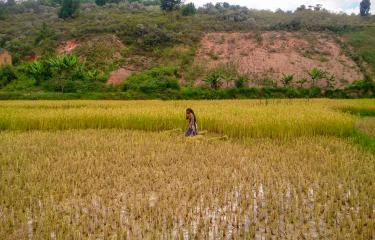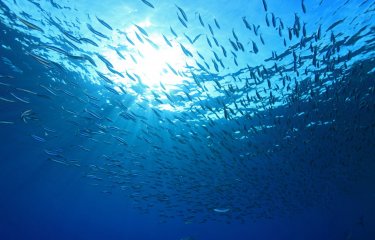In a new study, scientists from the Institut Pasteur and the CNRS demonstrate that admixture, a pervasive phenomenon in recent millennia, has enabled human populations to exchange beneficial genetic mutations among themselves, thereby facilitating their adaptation, especially when confronted with infectious diseases.
As the human species populated the dense forests of Africa, the Himalayan mountains and the archipelagos in the Pacific Ocean, it encountered a diverse array of microbes and had to make do with varied nutritional resources. To survive, human populations not only had to adapt their subsistence strategies; they also acquired genetic mutations via natural selection that protected them against certain pathogens and enabled them to digest some foods more easily. It has long been thought that this phenomenon of genetic adaptation took place in each isolated population, but research by scientists in the Institut Pasteur's Human Evolutionary Genetics Unit has challenged this theory.
Using millions of gene simulations, the study's authors began by developing a method to detect the frequencies of unusual mutations in the genomes of admixed populations that pointed to the effects of natural selection since admixture. They then used this method to scan the genomes of 15 worldwide populations. Their analyses demonstrated that most of the populations under study had acquired adaptive traits through admixture with other populations. In North Africa, Madagascar and Pakistan, admixture had led to ethnic groups inheriting genetic resistance to a form of malaria caused by Plasmodium vivax. Similarly, nomadic groups in the Sahara had acquired the ability to digest milk in adulthood as a result of genetic exchanges with North African populations. These discoveries indicate that mutations have significantly contributed to the survival of individuals in recent centuries alone, thereby demonstrating the continued, uninterrupted action of natural selection. The study reveals that admixture plays a beneficial role in the evolution of our species by facilitating the spread of advantageous mutations in genes associated with immunity and metabolism.
Source :
The genomic signatures of natural selection in admixed human populations, The American Journal of Human Genetics, 7 mars 2021
SebastianCuadros-Espinoza1,2, GuillaumeLaval1, LluisQuintana-Murci1,3, EtiennePatin1
1 - Institut Pasteur, Université de Paris, CNRS UMR2000, Human Evolutionary Genetics Unit, Paris 75015, France
2 - Sorbonne Université, Collège Doctoral, Paris 75005, France
3 - Chair Human Genomics and Evolution, Collège de France, Paris 75005, France





